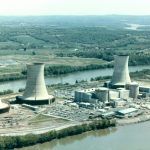Fukushima and the Seoul 2012 Nuclear Security Summit
By Duyeon Kim | March 18, 2011
In considering the implications of Fukushima for the 2012 Seoul Nuclear Security Summit, many experts in the United States would probably argue that there are none — their fundamental point being that it is a security summit, not a safety summit.
However, it is undeniable that Japan’s nuclear disaster has sounded alarm bells around the world. The words “nuclear reactor,” “radiation,” and “safety” have new resonance. Fear is inescapable.
It may be difficult to avoid a nuclear safety discussion at the summit next year, considering the gravity of the disaster and its potential life consequences, coupled with what was a growing global demand for nuclear energy to mitigate climate change.
The Fukushima disaster provides the impetus to bring more to the table than nuclear security: Nuclear safety and radioactive materials could be discussed, as well.
Although this conversation may not be as extensive as that on security issues, the aim would be to ensure a continuous discussion of safety issues at the summit level.
The fundamental difference between nuclear “safety” and “security” lies in the human factor. The Fukushima disaster is a “safety” concern, while unauthorized entry to a nuclear power plant, sabotage, or a terrorist attack fall under “security.” Along the same vein, the “safety” of radioactive sources means reducing the likelihood of accidents that could harm people, while the “security” of radioactive sources refers to measures to prevent harmful materials from going astray or being diverted for illegal and malevolent acts.
The 2010 Security Summit in Washington, DC, rightfully so, focused narrowly on nuclear security, fissile materials, and the threat of nuclear terrorism.
However, it may not be far-fetched to rethink the scope of the upcoming summit, considering the Republic of Korea’s unique position as the next chair. South Korea is a non-nuclear weapon state that has proven to be a responsible member of the Nuclear Non-Proliferation Treaty and a host of other international regimes and institutions. South Korea’s 21 reactors provide almost 40 percent of the country’s electricity, and it is becoming a major nuclear exporter in the world energy industry. It also has a nuclear weapons aspirant, North Korea, in its backyard.
Against this backdrop and in the wake of Fukushima, there are clear ways in which Seoul could lead the global community while adding a “Korean twist” to the summit agenda.
Safety and security of radioactive materials. As a representative of states that do not possess nuclear weapons or fissile materials, South Korea could spur an active discussion on the security and safety of radioactive sources. For such countries, there is an increasing fear that radioactive materials could be turned into tools. In other words, the threat of a “dirty bomb” that disperses radioactive materials is far greater than that posed by a nuclear device, although such threat certainly could come from beyond a state’s borders.
Hundreds of medical and industrial radioactive sources are abandoned, stolen, or lost each year, constituting both a safety and security concern. Thus, the threat of radiation leaks or loss of control over radioactive materials caused by nature, internal system failures, or malicious intent would be included in this category of discussions. South Korea could also capitalize on its well-known technology for tracking radioactive sources.
Safety and security of nuclear power plants. The safety and security of nuclear power plants could be included in the summit agenda in light of the Fukushima disaster, as well as Seoul’s rising role as a major nuclear exporter. Nuclear safety is a far more established concept than the security of nuclear reactors. However, Fukushima has proven that reactors are not 100 percent safe. It has prompted the need to further develop reactor designs to withstand multiple traumas and cope with system failures. There are also increasing calls for a mechanism to deal with the safety and security of stored spent nuclear fuel.
On the “security” front, a person with malicious intent and access to nuclear power plants could re-create similar conditions to the Fukushima disaster that all lead to a meltdown and radiation leaks: damage to a reactor’s cooling system, inability to supply outside power into the reactor, and damage to the diesel generator. In this situation, safety and security issues must be dealt with simultaneously.
Nonproliferation. Finally, on the summit agenda, Seoul could also highlight nonproliferation issues, which many nuclear security experts typically like to avoid. One way to do so is to zero in on illegal trafficking and smuggling of nuclear parts, materials, and know-how. This focus would prevent legitimizing North Korea’s nuclear programs, as well as those of other “rogue” states. It also could encourage active discussion on effective ways to implement UN Security Council Resolution 1540, which requires member states to take measures against the proliferation of weapons of mass destruction, their means of delivery, and related materials.
As a country that shares a border with a nuclear aspirant, Seoul should find it hard to ignore the nonproliferation discussion. What is more, one cannot focus on nuclear security without considering proliferation risks and implications, since the crux of “nuclear security” is ensuring that vulnerable nuclear materials do not fall into the hands of terrorists or rogue regimes.
Many could argue that a broader Seoul Nuclear Security Summit could prevent full implementation of the 2010 summit commitments. However, it may be worthwhile to discuss ways for Washington to continue to take the lead in ensuring the implementation of the 2010 initiative despite a change in chairmanship, while Seoul could be responsible for seeing through additional initiatives.
Prior to Fukushima, active discussions on nuclear safety were becoming a thing of the past due to strong safety precautions put in place since the Three Mile Island and Chernobyl incidents. However, a natural disaster has rocked the reactors in a country known for its state-of-the-art nuclear technology, which may be a wake-up call to put the existing global nuclear safety regime back under the lens. It may be worthwhile for countries to share such ideas at the highest level of authority at the 2012 Nuclear Security Summit.
We may have come to a point where nuclear safety and security issues are not mutually exclusive, but need to be addressed simultaneously and consistently at the summit level.
Together, we make the world safer.
The Bulletin elevates expert voices above the noise. But as an independent nonprofit organization, our operations depend on the support of readers like you. Help us continue to deliver quality journalism that holds leaders accountable. Your support of our work at any level is important. In return, we promise our coverage will be understandable, influential, vigilant, solution-oriented, and fair-minded. Together we can make a difference.
Topics: Nuclear Energy, Nuclear Weapons, Opinion















